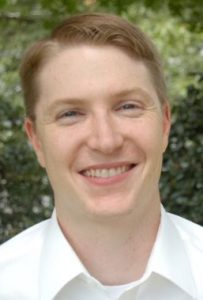The battle over women serving as pastors in the Southern Baptist Convention took on new heat this week when the new pastor at Saddleback Church affirmed his belief that both men and women are qualified to preach and when a group of conservative SBC pastors began circulating a letter asking the SBC Executive Committee to draft a constitutional amendment banning churches that allow women to serve as “pastors of any kind.”
This continues a dispute that erupted on the floor of the SBC annual meeting in Anaheim, Calif., last June. An effort was made to disfellowship Saddleback Church, the largest church in the SBC, because it had ordained three female staff members as ministers. That prompted the church’s founding pastor, Rick Warren, to address the body in a passionate speech about evangelism and church planting.
The matter of Saddleback’s membership in the SBC was tabled and sent back to the Credentials Committee. In the meantime, Warren has retired and the Southern California megachurch’s new pastor is Andy Wood, whose wife, Stacie Wood, recently was named a teaching pastor at Saddleback. She held a similar role at their previous church in the San Francisco Bay area.

A recent Facebook post by Saddleback Church
In an interview with Associated Press, Wood said he intends to proceed with elevating women in church leadership — a stance sure to enrage some in the SBC who insist the role of pastor is reserved only for males. While that restrictive view is most notably held by SBC Calvinists, it also is shared to various degrees by a majority of SBC pastors. Most pastors and churches that support women in ministry left the SBC in the late 1990s and early 2000s as a result of the so-called “conservative resurgence.”
Saddleback not only is huge — it’s a multi-site ministry reaching about 40,000 people worldwide — it has been one of the most influential churches in American history. Warren’s bestselling book, The Purpose Driven Life propelled him to national influence. That was followed by The Purpose Driven Church, which became a kind of required textbook for church growth.
Thus, when the church ordained three women as ministers last year, that became a shot heard around the world. Saddleback is a scrupulously conservative church theologically, although infused with a sense of social justice in its vast ministries.
Wood told AP he’ll encourage men and women to preach, asserting that the Bible “teaches that men and women were given spiritual gifts by God.”
“The church should be a place where both men and women can exercise those spiritual gifts.”
“The church should be a place where both men and women can exercise those spiritual gifts,” he said. “My wife has the spiritual gift of teaching, and she is really good. People often tell me she’s better than me when it comes to preaching, and I’m really glad to hear that.”
Under his leadership, he said, Saddleback “is empowered for men and women to lead.”

Mike Law
Now, a group of conservative SBC pastors wants the Executive Committee to put a stop to all this talk of women serving as pastors. Mike Law, pastor of Arlington Baptist Church in Arlington, Va., has organized a petition to the Executive Committee to advance a constitutional amendment that would add to membership requirements: “Does not affirm, appoint, or employ a woman as a pastor of any kind.”
Only churches are “members” of the SBC. Individual members of local churches may serve as “messengers” from those churches to the annual meetings. A constitutional amendment would require approval by two-thirds of messengers at two consecutive annual meetings.
As of Oct. 25, more than 600 people had signed on to Law’s letter through an online portal. Among the first signers was Tom Ascol, an unsuccessful candidate for SBC president this year who also leads Founder Ministries, a group of SBC Calvinists.
Law explains his belief that the amendment is necessary because of the rampant use of “pastor” in titles of church staff members and because of his concern that “a number of Southern Baptist churches appoint, affirm or employ women as pastors.”
While not all these are “senior pastor” roles, the use of titles such as co-pastor, worship pastor, women and children’s pastor, discipleship pastor, or youth pastor “all trade on the office of ‘pastor,’” he says.
Prohibiting such practice in SBC churches would be an act of unity, he argues.
He quotes Article 6 of the Baptist Faith and Message 2000 that says a New Testament church’s “scriptural officers are pastors and deacons. While both men and women are gifted for service in the church, the office of pastor is limited to men as qualified by Scripture.”
“Ushering women into the pastoral office in Southern Baptist churches unsettles our convention’s unity.”
“This matter has long been settled by Southern Baptists. Ushering women into the pastoral office in Southern Baptist churches unsettles our convention’s unity,” Law says. “We, therefore, urge you to act on biblical and missional grounds already well-established and agreed upon by Southern Baptists in order to keep our unity.”
He contends that “biblically, only men qualified according to Scripture … may hold the office of ‘elder’ … or ‘overseer.’”
“Paul does not leave us guessing as to how the household of God should be ordered. He identifies the teachers of God’s church as qualified men.”
While enforcing the view that only men may serve as pastors will create unity, “abiding women in the pastoral office materially harms the work of the convention because it cultivates disunity where we have long been united,” Law says. “It contaminates the soil of our convention with distrust of and disobedience to the Scriptures, particularly 1 Timothy 2:12 and 3:1-7.”
Related articles:
Largest church in SBC ordains three women as pastors
As church staff roles evolve, the SBC is forced to define the word ‘pastor’


